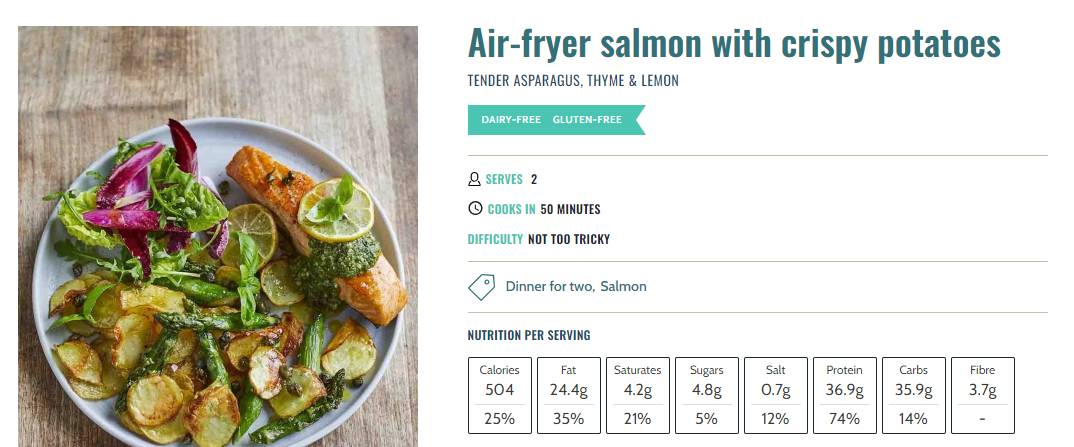Inflammatory Foods, How They Affect Us, and How To Avoid Them!
Feeling puffy, heavy, bloated, irritable and slow?
It’s very likely your diet is what’s dragging you down!
Consuming foods that promote inflammation in the body can have a wide range of negative effects on your health, leaving you feeling unwell and at an increased risk of chronic diseases.
Since chronic inflammation is linked to several health conditions and can contribute to long-term health problems, we want to share our best nutrition tips to combine with an exercise program from Brantford physical trainer Bill DeHoog to keep you healthy and feeling your best!
The 5 Most Inflammatory Foods
The Inflammatory 5 are a collection of foods that should be avoided when optimizing health is the goal.
Gluten
Dairy
Corn
Soy
Sugar
Why should we avoid the Inflammatory 5?
The biggest issue with eating the Inflammatory 5 is that by including them in your diet, they cause inflammation throughout the body.
Inflammation is your body’s response to stress!
This is a natural response from your body's immune system, telling your body that it’s in danger. To put this in perspective, think about when you burn your finger - it gets red, swollen, irritated and sensitive. Your body’s immune response kicks in to avoid the fire and heal, because the fire has been removed from your finger. However, now imagine this inflammation happening in your gut, organs, muscles and joints, but never having a chance to heal because the body is constantly exposed to the Inflammatory 5.
Most people get stuck in this state of chronic inflammation, which is one of the major reasons why you cannot drop body fat, or avoid illness. Inflammation is a whole body problem, and it requires whole body health solutions in order to properly address them.
What Are the Potential Effects of Eating Inflammatory Foods?
Increased Risk of Chronic Diseases: Chronic inflammation is associated with an increased risk of various chronic diseases, including heart disease, diabetes, cancer, as well as autoimmune disorders. Inflammation can contribute to the development and progression of these conditions, which we certainly want to avoid!
Weight Gain and Obesity: Inflammatory foods can lead to weight gain and obesity, which, in turn, can promote inflammation. Adipose tissue (fat) produces pro-inflammatory substances that can perpetuate the cycle of inflammation.
Digestive Issues: Some foods that promote inflammation can irritate the digestive tract and lead to conditions such as irritable bowel syndrome (IBS) and inflammatory bowel disease (IBD).
Joint Pain and Arthritis: Inflammatory foods may exacerbate joint pain and arthritis symptoms. Conditions like rheumatoid arthritis are characterized by chronic inflammation in the joints.
Skin Problems: Inflammation can manifest as skin issues, such as acne, psoriasis, and eczema as well. Some people find that their skin condition worsens when they consume pro-inflammatory foods.
Cognitive Decline: There is growing evidence that chronic inflammation may be linked to cognitive decline and neurodegenerative diseases like Alzheimer's disease.
Weakened Immune System: Chronic inflammation can weaken the immune system's ability to respond effectively to infections and diseases.
Allergies and Asthma: Inflammatory foods may trigger or worsen allergies and asthma symptoms in susceptible individuals.
Cardiovascular Problems: Inflammation can damage blood vessels and promote atherosclerosis (hardening of the arteries), increasing the risk of heart disease and stroke.
Hormonal Imbalance: Chronic inflammation can disrupt the balance of hormones in the body, potentially leading to issues like polycystic ovary syndrome (PCOS) and hormonal imbalances in men.
To reduce inflammation, it's advisable to consume an anti-inflammatory diet rich in fruits, vegetables, whole grains, lean proteins, and healthy fats while minimizing or avoiding pro-inflammatory foods like sugary snacks, processed foods, fried foods, and excessive red meat.
Consult Bill DeHoog for personalized nutrition and physical training advice in order to help avoid inflammation and its impact on your health!
Let’s Break Down #1 - Gluten:
Most commonly found in grains; Barley, Rye, Wheat, Spelt, and Oats which is naturally a gluten free grain, but gets extremely contaminated through processing. Make sure to look for 'Gluten Free' on the label!
Common Symptoms:
Bloating, constipation, diarrhea, abdominal pain, smelly stool, joint pain, muscle pain and weakness, brain fog, fatigue and heaviness, depression, skin issues, headaches, anxiety, and iron deficiency.
Where You’ll Find It + Alternative Choices:
Flours: Baked goods, breads, crackers, cookies and more that contain wheat, rye, barely, spelt or oats that are not labeled gluten free. Alternatively look for products or bake with gluten free flours like rice, oat, chickpea, almond, and coconut.
Soups: Cream based soups may be thickened with flour, while others may contain barley. Instead, stick to clear based soups with no flour or noodles.
Sauces and Dressings: Be on the lookout for malt vinegar, flour or soy sauce in any condiments, sauces or salad dressings. Substitute soy sauce can be substituted for Tamari which tastes the same.
Alcohol: Some alcohols like beer, rye, hard cider, wine spirits, and hard lemonade contain wheat, barley or malt. Alcohol labels can also be very vague on their ingredient lists, so it's best to do your research before drinking any. Bill DeHoog’s fitness tip: Cheers to Unspiced Rum, Red Wine & gluten free options.
Processed meats: Some processed, cured and dried meats contain wheat fillers. Best to avoid all deli meats. Aim to eat only fresh, high quality meats.
Candies: Look for malt or wheat - liquorice, whoppers, nougat, anything with a crunch is likely off limits.
5 Awesome Gluten Free Recipes to Share:
See you next time when we carry on with the next of the Inflammatory 5 - Dairy!
We’ll explore additional insight, tips, whole body health and fitness strategies, healthy recipes, and more!
Are you ready to start your journey towards Whole Body Fitness?
Reach out for Zoom class schedules that work for you!
Ready for your free initial assessment?
Let’s Connect!
(519) 770-8027




